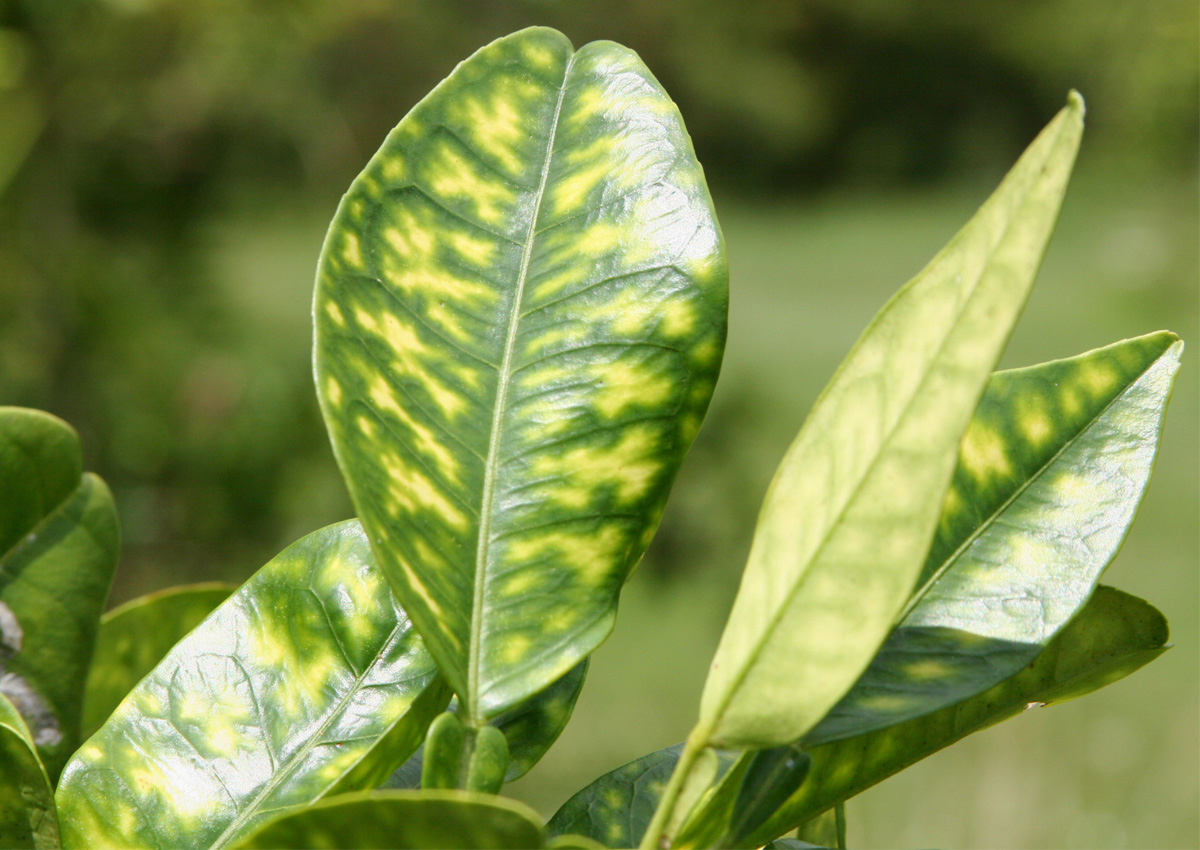
Researchers Find Peptide that Treats and Prevents Citrus Greening
February 10, 2021| |
Research conducted by scientists from the University of California Riverside (UC Riverside) has identified that a unique peptide found in an Australian plant can destroy Huanglongbing (HLB) or citrus greening, the top killer of citrus trees worldwide.
The UC Riverside research could possibly provide the most effective way of treating the disease through the antimicrobial peptide found in Australian finger lime, a close relative of citrus plants. Hailing Jin, the UC Riverside geneticist who led the research said that the peptide's corkscrew-like helix structure quickly punctures the bacterium, causing it to leak fluid and die within half an hour, much faster than antibiotics.
When the research team injected the peptide into plants already sick with HLB, the plants survived and grew healthy new shoots. Infected plants that went untreated became sicker and some eventually died. "This shows the peptide can rescue infected plants, which is important as so many trees are already positive," Jin said.
Aside from its efficacy against the bacterium, the stable anti-microbial peptide, or SAMP, offers more benefits over current control methods. It remains stable and active even when used in 130-degree heat, unlike most antibiotic sprays that are heat sensitive — an important attribute for citrus orchards in hot climates like Florida and parts of California.
For more details, read the article in UC Riverside News.
| |
You might also like:
- Gene Editing Provides Possible Solution to Citrus Greening Disease
- Researchers Make Breakthrough in Understanding Citrus Greening Bacteria
- Researchers Find New Clues on How to Stop Spread of Citrus Greening
Biotech Updates is a weekly newsletter of ISAAA, a not-for-profit organization. It is distributed for free to over 22,000 subscribers worldwide to inform them about the key developments in biosciences, especially in biotechnology. Your support will help us in our mission to feed the world with knowledge. You can help by donating as little as $10.
-
See more articles:
-
News from Around the World
- Developing Countries Outperform Industrial Countries in GM Crop Adoption
- Researchers Find Peptide that Treats and Prevents Citrus Greening
- Pakistan and China Collaborate to Build Intelligent Agriculture Systems
- Chinese Scientists Unravel the Genome Sequence of Chayote to Improve Its Tuber and Fruit Development
- Overexpression of Plasma Membrane Proton Pump Gene in Rice Promotes Less Fertilizer Use
- Indonesia Passes Post-monitoring Regulation for Genetically Engineered Crops
-
Research Highlights
- BOxO Gene Confers Resistance against Stem Rot in Brown Mustard
- Nanopore Technology Provides GM Plant Molecular Characterization in Just 1 Week
-
Plant
- France's Researchers and Experts Support Agriculture Minister's Vision for New Plant Breeding Technologies
- Leading Scientists and Politicians Welcome Defra Gene Editing Consultation
- Demand for Nutritious Food and Targeted Treatments Fuels Growth of CRISPR Market
-
Health
- Study Shows Climate Change May Have Driven Emergence of SARS-CoV-2
-
Read the latest: - Biotech Updates (February 18, 2026)
- Gene Editing Supplement (January 28, 2026)
- Gene Drive Supplement (February 22, 2023)
-
Subscribe to BU: - Share
- Tweet

